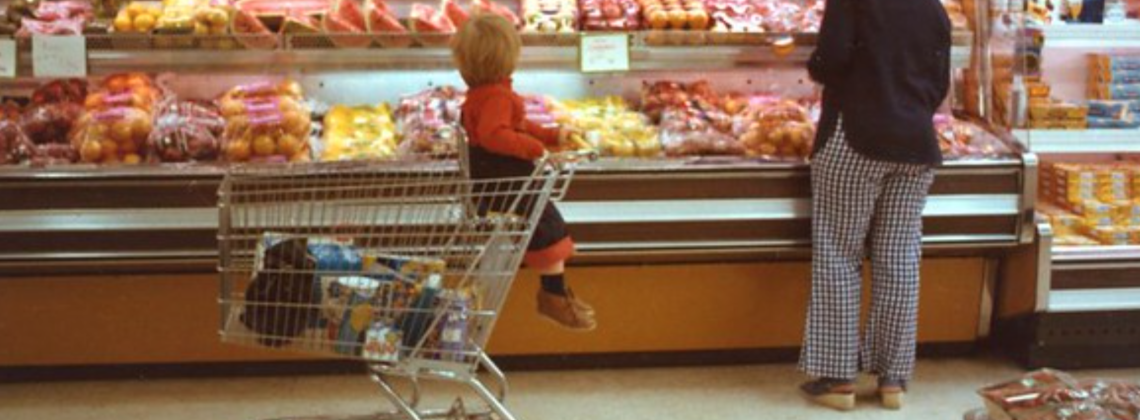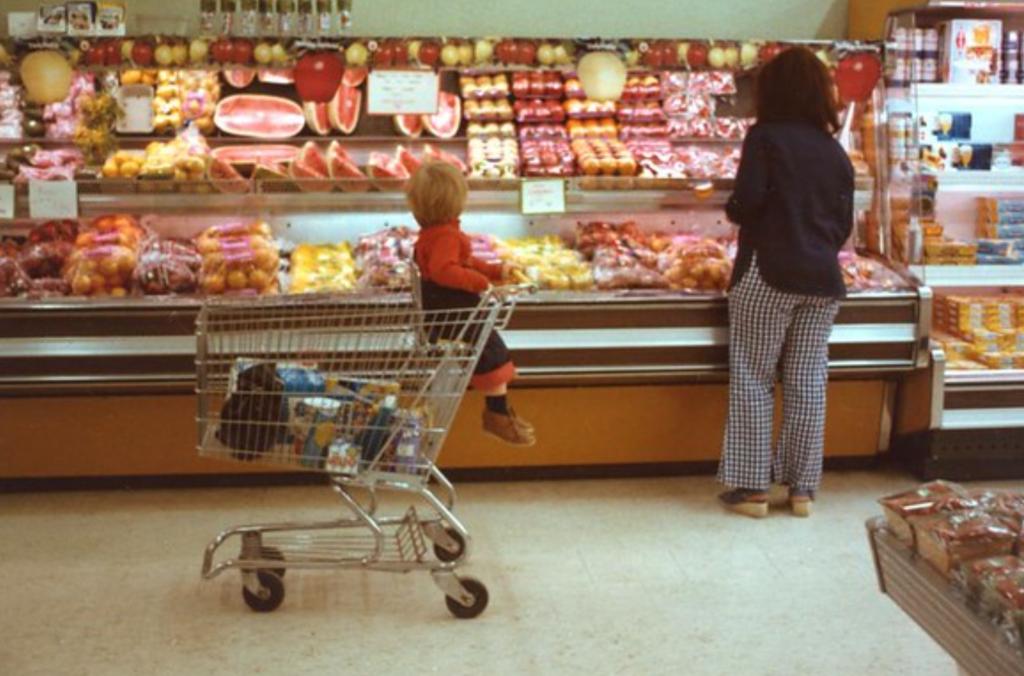

The world of my boyhood is gone. But that doesn’t mean I’ve stopped longing for it.
Last year I started writing a memoir. Due to other demands, I only managed to write one chapter. For my next several Current features I will be sharing excerpts from that chapter. Read the first installment here. —JF
My mother was tall, beautiful, well-liked by her peers, and deeply pious. She grew up in a pre-Vatican II world seasoned with the Slovakian folk Catholicism that my grandmother taught to her. She prayed the rosary regularly, read the passion story with her brothers and sisters on Good Friday, had a palpable sense that the Virgin Mary was watching over her, and went to mass every Sunday at St. Cyril Methodius Church in Boonton, New Jersey. The mass was in Latin and the priest preached his homily in Slovak, so my mother didn’t understand a word that she was hearing. Nevertheless, she participated in all the rituals: the blessings of the Easter meal on Holy Saturday, the Catholic Sokol Halls, and the Christmas dinners that began with the sharing and eating of the Oplatki, a communion-like wafer depicting the events surrounding the birth of Christ. She brought some of these traditions to our family.
My mother’s father—my grandfather—was a milkman. He was usually out of the house each morning by about 3:00 to make sure his customers had cold, fresh milk for their cereal and coffee. When I was a kid I knew he had returned from his route by the clanking of empty glass bottles in the back of his truck. Her mother—my grandmother—stayed home and cared for her seven children. They lived in a tiny house on a seventy-acre tract of land on the side of a small mountain in Montville, a rural town in Morris County, New Jersey filled with winding roads and rolling hills. My great-grandfather, a Slovakian immigrant, purchased the property shortly after his arrival to the United States around the turn of the twentieth century. All five of my grandfather’s brothers lived on that land. They eventually opened a tavern and a gas station on it.
When I was a toddler, my parents bought a Cape Cod adjacent to this property and I spent the better part of my childhood exploring it with my brothers. I must have traversed every inch of that land: the frog pond behind our house, the hay fields where we played tackle football, the cleared space that groups like the Lions Club rented for clam bakes, the stone walls my great-grandfather built, the sledding hills, the well-worn bike paths in the woods, the apple orchard, and the junkyard. On a clear day if you climbed to the top of the hill—it was called Turkey Mountain—you could get a glimpse of the New York City skyline. My family sold the property more than twenty years ago. Today it is covered with McMansions. The sounds of rumbling air-condition units has replaced the croaking frogs and the chirping crickets.
After she graduated high school my mother worked for a few years as a clerk/typist at Bell Laboratories, but like most working-class women of her time she never imagined anything other than a life raising children and supporting her husband. I came along, the eldest of three boys all born a year apart, in 1966. (A girl came along about twelve years later. My parents refused to call my baby sister a “surprise,” insisting that she was an “unexpected blessing.”)
Most of my mother’s siblings also settled close to the family homestead. My grandparents’ house—with its above-ground pool in the backyard—was the center of activity that drew all of us together. I recall Fourth of July picnics that included softball games, horseshoes, plenty of hamburgers and hot dogs, and generic-brand sodas (black cherry, lemon-lime, grape) buried deep in a huge brown tub of ice. It was always a treat when my Uncle Billy brought his guitar along. We sat together in the moonlight singing songs by John Denver, Willie Nelson, and Don McLean. There were also debilitating illnesses, cancer diagnoses, alcoholism, divorces, uncles emotionally scarred from service in Vietnam, and economic woes (it was the 1970s after all), but these are not the things that young boys tend to remember when they look back nostalgically on their childhoods. Today, when I hear someone on the Christian Right talk about “family values,” these images come to mind.
I grew up in a world of stay-at-home moms, construction workers, delivery men, linemen, welders, and police officers. All the world’s problems were solved whenever all these characters, sitting in lawn chairs with beers in hand, gathered on the back patio—any back patio. The cacophony of voices yelling and arguing was exhilarating. None of my extended family was college-educated nor did any really aspire to be. I was the first person on my mother’s side of the family to earn a bachelor’s degree.
This world of my boyhood is gone. It only lives in the stories I tell my children and, perhaps someday, my grandchildren. But that doesn’t mean I’ve stopped longing for it. There is not a day that goes by that I don’t experience what one of my favorite writers, Richard Rodriguez, has described as the “hunger of memory.”
John Fea is Executive Editor of Current.
A moving and evocative piece. All that blue collar nostalgia and you still had the intellectual wherewithal to resist Trump’s siren song? You are a rarity in these times.